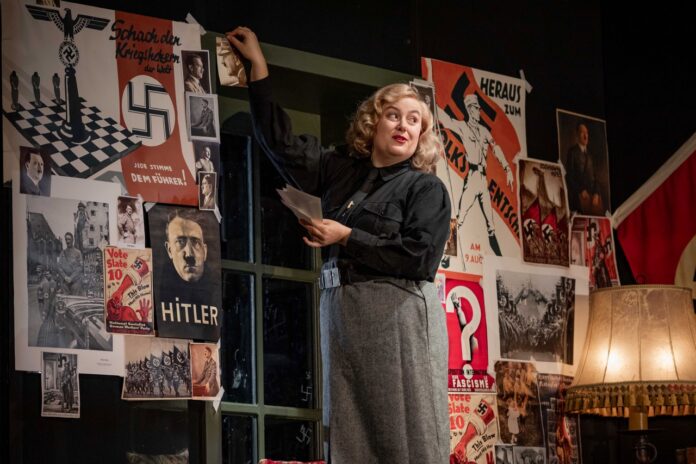There were moments in The Party Girls, currently playing at Oxford Playhouse READ ABOUT IT HERE, that actually made my hair stand on end, as Unity repeats Hitler’s vitriol and Diana eschews the values of the far right.
Prescient to an extreme, it’s shocking how relevant The Party Girls is, as today’s global affairs echo the Mitford sisters’ rhetoric with uncanny accuracy. Presumably a play on words, considering their political aspirations, it seems terribly sad that nearly a century later we seem to have learnt nothing.
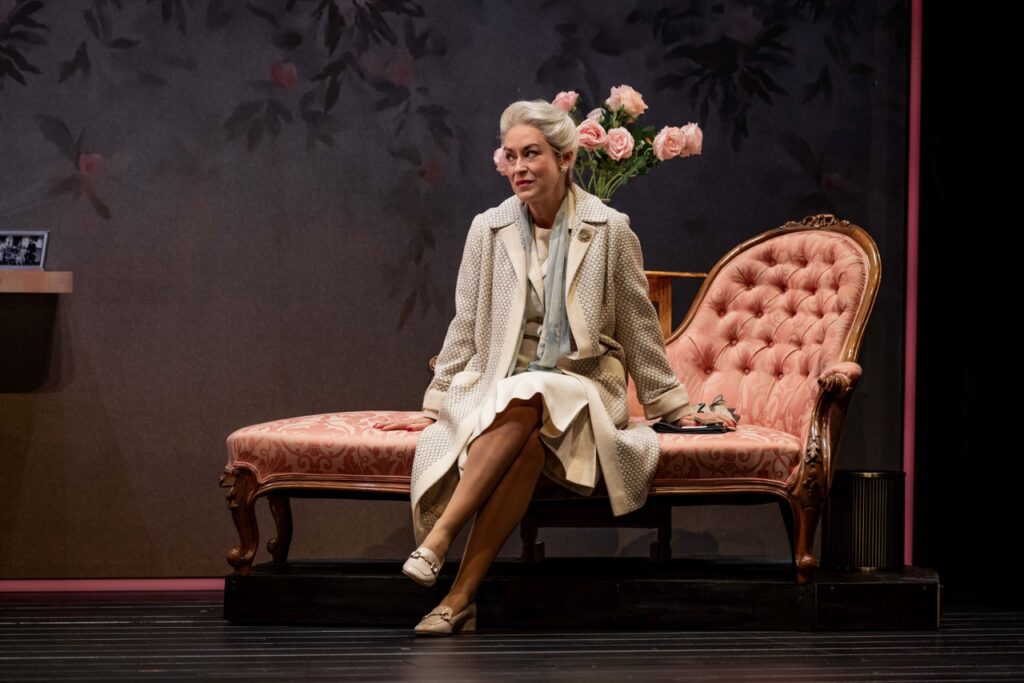
Long seen as societal darlings, bohemian eccentrics, glamorous aristos and the It girls of their time, the Mitford sisters’ notoriety has survived the decades. But playwright Amy Rosenthal has no qualms in brandishing the darker side of their infamous existence for all to see.
The dichotomy for the Playhouse audience is to decipher between this hybrid of defiant and cheerful zealotry and the undeniably bewitching individuals themselves
She holds them to account by elaborating on their bigotry, extremism and unapologetic fanaticism, albeit wrapped up in a discerningly charming, and seemingly frivolous, package. Not all are fascists of course; Decca a communist, Nancy a writer and Debs a debutante looking for her duke, but together they are certainly a force to be reckoned with.
The dichotomy for the Playhouse audience therefore, is to decipher between this hybrid of defiant and cheerful zealotry and the undeniably bewitching individuals themselves; sophisticated, savvy, outspoken, brazen and independent, their close relationship and quirky personas seemingly at odds with their beliefs.
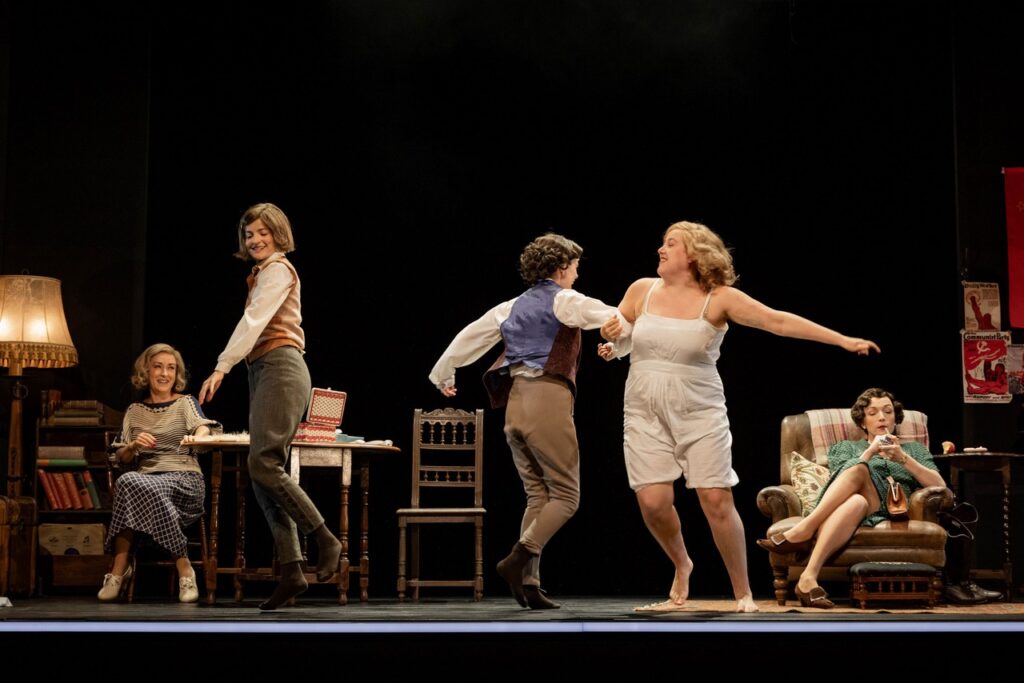
Perhaps it is because they are so complicated, diverse, execrable yet irresistible, that keeps us so enamoured, but it leaves a sour taste in the mouth.
where to start? With Decca, the fearless, communist being interviewed by her future husband Bob, their love story the backbone of the play, her estrangement from her sisters immediately evident
Amy Rosenthal’s script therefore has eons of material to work with, although poor old siblings Pamela and Tom don’t even get a look in, presumably because they aren’t dynamic enough. Neither do their parents David and Sydney who were shattered by the treachery, eventually divorcing, David heart-broken and ashamed until the day he died.
But where to start? With Decca, played so defiantly by Emma Noakes, the fearless, communist sister who elopes to Spain with her first husband Esmond Romilly who then goes missing in action. We find her being interviewed for a job with the Office Of Price Administration in the US by her future husband Bob (a Hungarian Jew), their love story the backbone of the play, her estrangement from her sisters immediately evident, her need to distance herself from her family acute.
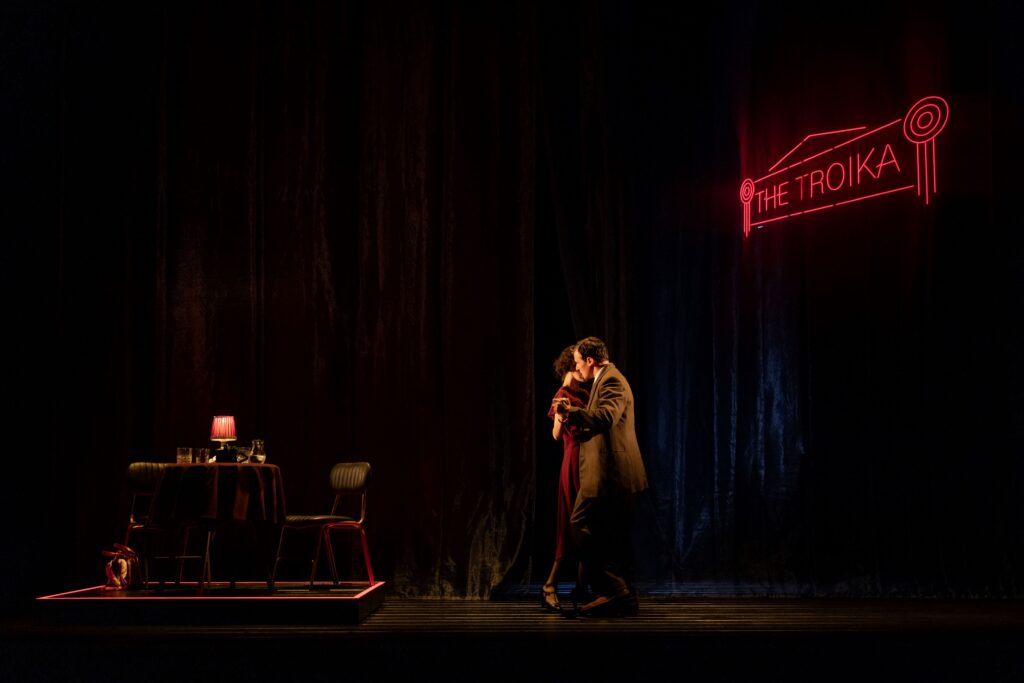
The script switches between eras, harking back to happier times when the sisters co-existed happily at home, although their extreme views are already in evidence – Decca and Unity’s bedroom split down the middle, one side decorated with Nazi swastikas the other with Russian sickles.
Ell Potter plays the maddeningly cheerful, fun and hyper Unity whose all-consuming crush on Hitler sees her move to Berlin to befriend the Nazi leader, imbuing all of his beliefs and advocating his anti-semitic policies whole-heartedly.
Her sister Diana (Elisabeth Dermot Walsh) becomes her partner-in-crime, Diana scandalously leaving her husband Bryan Walter Guinness, 2nd Baron Moyne, for the married fascist leader Oswald Mosley, totally intoxicated with her new beau whom she married her in Goebbels’ house, Hitler a guest of honour. That they were interned in Holloway prison during the war and lived out the rest of their married life in exile in France, didn’t diminish her devotion.
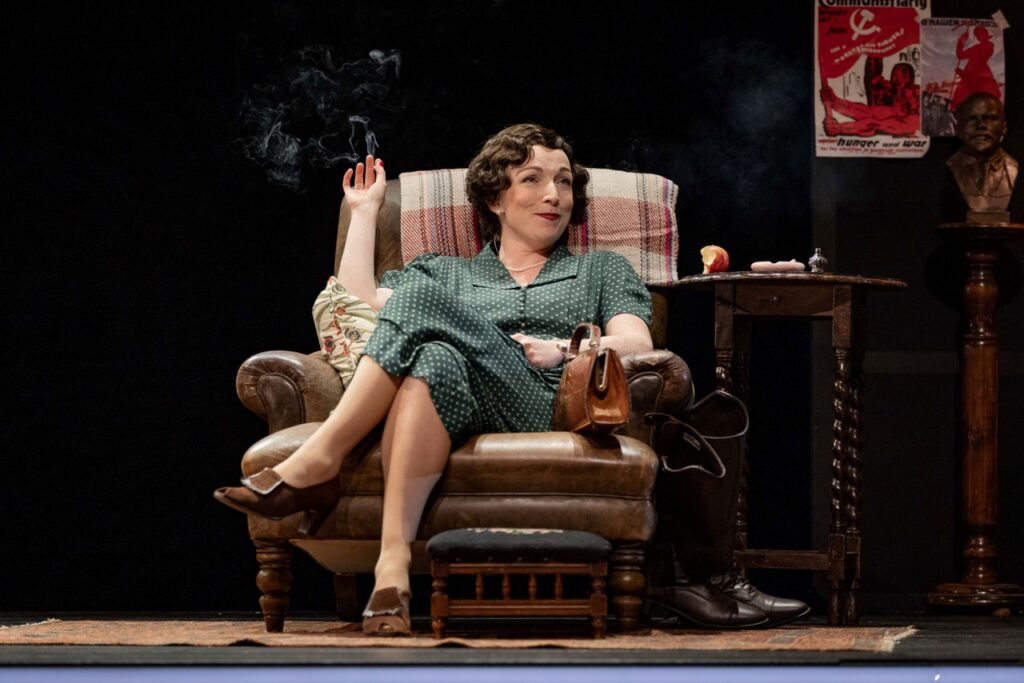
When Unity shoots herself, Rosenthal insinuates that it’s not because war was declared between the two countries she loved, as is believed, but because Hitler chose Eva Braun over her, the bullet causing permanent brain damage, the rest of her days lived much like her original nursery existence.
Author Nancy’s matriarchal bent, stoic loneliness and snappy dialogue is encompassed beautifully by Kirsty Besterman, while Debs, the future Duchess of Devonshire, (played by Flora Spencer-Longhurst) dreams of marrying her duke, both fiercely independent and caught in the middle of the family feud.
If the second half jumps arbitrarily, it keeps us on the edge of our seats, incredulous in the face of their reality. The abrupt end could have come at any point, so much of their story left untold, but there is still so much to take home and unpack.
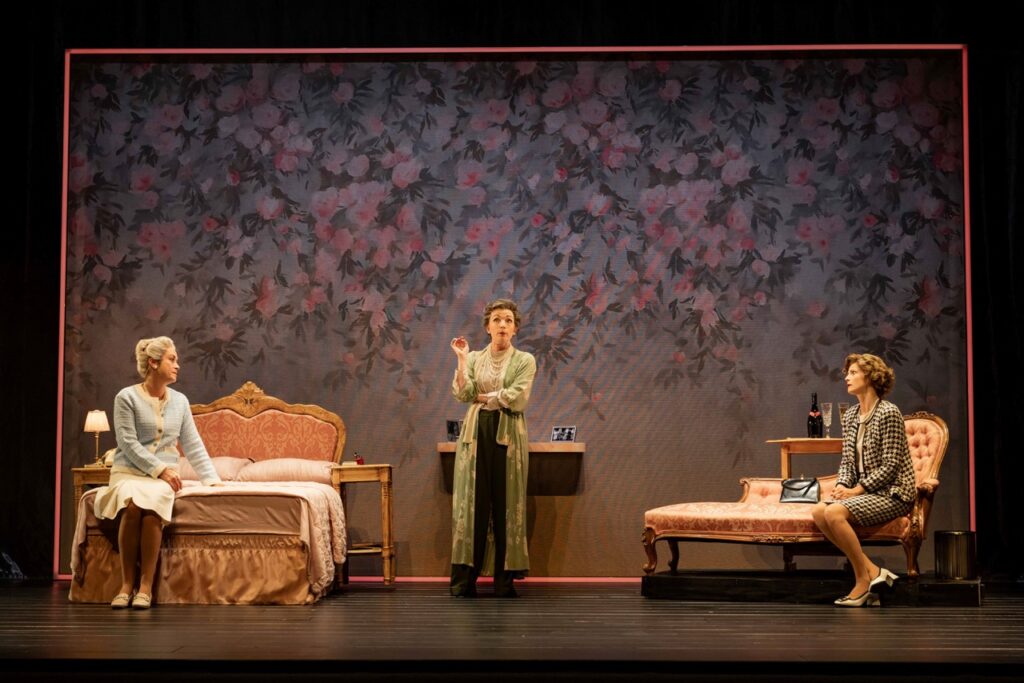
So if it’s a light-hearted romp you’re after The Party Girls is not for you, but if you’re looking for a dramatic and novel take on the Mitford sisters, Amy Rosenthal’s script is both prescient, insightful and disturbing.
The Party Girls runs at Oxford Playhouse until Saturday October 4. Book here https://www.oxfordplayhouse.com/events/the-party-girls









